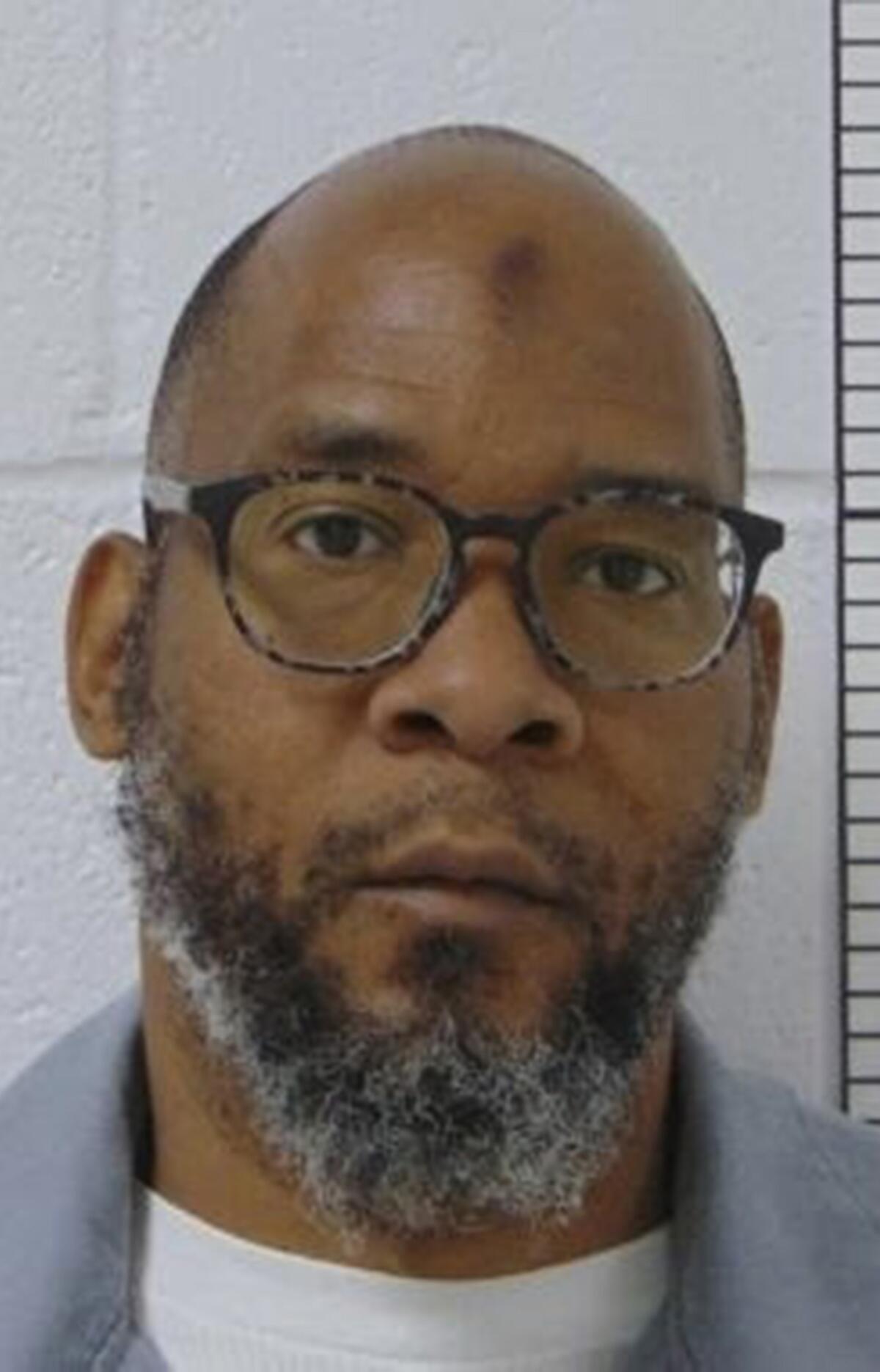What kind of country would kill Marcellus Williams despite the doubts about his conviction?

- Share via
The execution of Marcellus Williams, who was put to death by the state of Missouri last week over the protests of a prosecutor and the family of the woman he was convicted of murdering, exemplifies why the death penalty is a stain on the conscience of this country.
It is not just that the practice is barbaric. Our justice system is also incapable of convicting the right person 100% of the time.
“If there is even the shadow of a doubt of innocence, the death penalty should never be an option,” said St. Louis County‘s chief prosecutor, Wesley Bell, who argued that Williams, 55, should be spared.
Are we really willing to accept the wrongful execution of a few innocents as the price we pay for getting it right most of the time? That is a preposterous moral bargain.
Through half a century of death threats and derision, Warren Hern has never stopped providing women with critically needed healthcare.
Since 1992, according to the Death Penalty Information Center, newly available DNA evidence has led to the exoneration and release of more than 20 death row inmates. Since 1973, the center reports, at least 200 people who were sentenced to death have been exonerated.
What was to blame for their wrongful convictions? In most cases, it was official misconduct, perjury or both.
Oh, and let’s just say it: racism. According to the Innocence Project, 58% of the defendants the group has proved wrongfully convicted over the last 40 years were, like Williams, Black.
Abcarian: Why we should care about Robert F. Kennedy Jr.’s scandalous relationship with a journalist
New York magazine Washington correspondent Olivia Nuzzi was suspended after acknowledging an inappropriate personal relationship with Robert F. Kennedy Jr.
The Innocence Project was founded in 1992 by two attorneys, Barry Scheck and Peter Neufeld, who understood that if DNA technology was useful for proving guilt, it could also help prove innocence. I recommend a quick tour of the project’s website, with its stunning statistics laid out starkly in black and white: As of June, the project’s work has led to 251 legal victories and 203 DNA exonerations, and the group’s clients have wrongfully spent a total of 3,942 years behind bars.
Williams was convicted of the 1998 killing of Felicia “Lisha” Gayle, a 42-year-old journalist and social worker. She died a gruesome death by repeated stabbing with her own kitchen knife.
A jailhouse informant and Williams’ then-girlfriend told authorities he had confessed to the crime. But both were what defense lawyers call “incentivized witnesses.” The informant accepted $5,000 for his testimony, and the girlfriend was facing solicitation charges when police approached her about the murder. She also told friends she had been paid for her testimony, according to the Midwest Innocence Project. Both witnesses have since died.

In denying Williams clemency, Missouri’s Republican governor, Mike Parson, said he had “a robust criminal history,” including 15 previous felony convictions, which were “all consistent with entering the home, attacking Ms. Gayle, and taking her” belongings.
But as Williams’ attorneys have noted repeatedly, no forensic evidence tied Williams to the crime scene. DNA testing, which was not available when Williams was first tried, found no evidence of his genetic material on the murder weapon or anywhere else in Gayle’s home. In fact, later tests showed that, as the Associated Press put it, “the knife had been so mishandled in the aftermath of the killing that it would be impossible to identify the killer.” The prosecutor who handled the case and an investigator admitted that they had touched the knife several times without gloves.
Bell, the county’s current top prosecutor and a Democrat who is running for Congress, reached an agreement with Williams’ lawyers in August. Despite never having wavered in his claim of innocence, Williams would plead no-contest to first-degree murder and be sentenced to life in prison without the possibility of parole. But at the behest of Republican state Atty. Gen. Andrew Bailey, who is seeking reelection, the Missouri Supreme Court blocked the agreement.
And shame on the six conservative members of the U.S. Supreme Court, whose antiabortion zealotry has led to the deaths of at least two women, for refusing to stay Williams’ execution. (The court’s three liberal members agreed that a stay would have been proper.)
“Marcellus Williams’ conviction is a grave miscarriage of justice and to execute him would be an unthinkable, irreversible travesty,” one of his attorneys wrote in a court filing.
It happened anyway.
“We hope this gives finality to a case that has languished for decades, revictimizing Ms. Gayle’s family over and over again,” Missouri‘s governor said after Williams was killed by lethal injection.
But Gayle’s family told the Supreme Court that they defined closure “as Marcellus being allowed to live.”
So we must ask: finality for whom?
More to Read
A cure for the common opinion
Get thought-provoking perspectives with our weekly newsletter.
You may occasionally receive promotional content from the Los Angeles Times.












